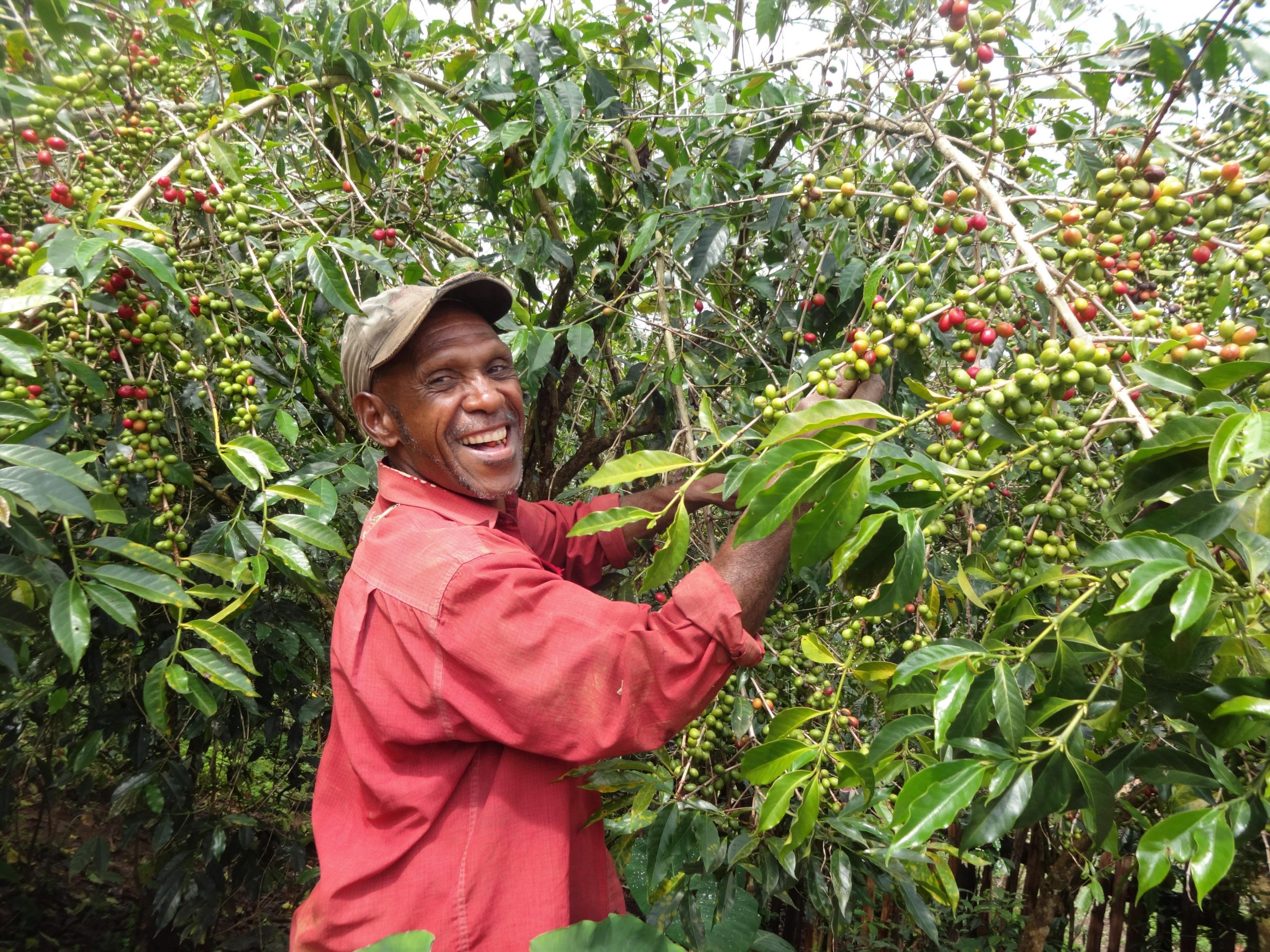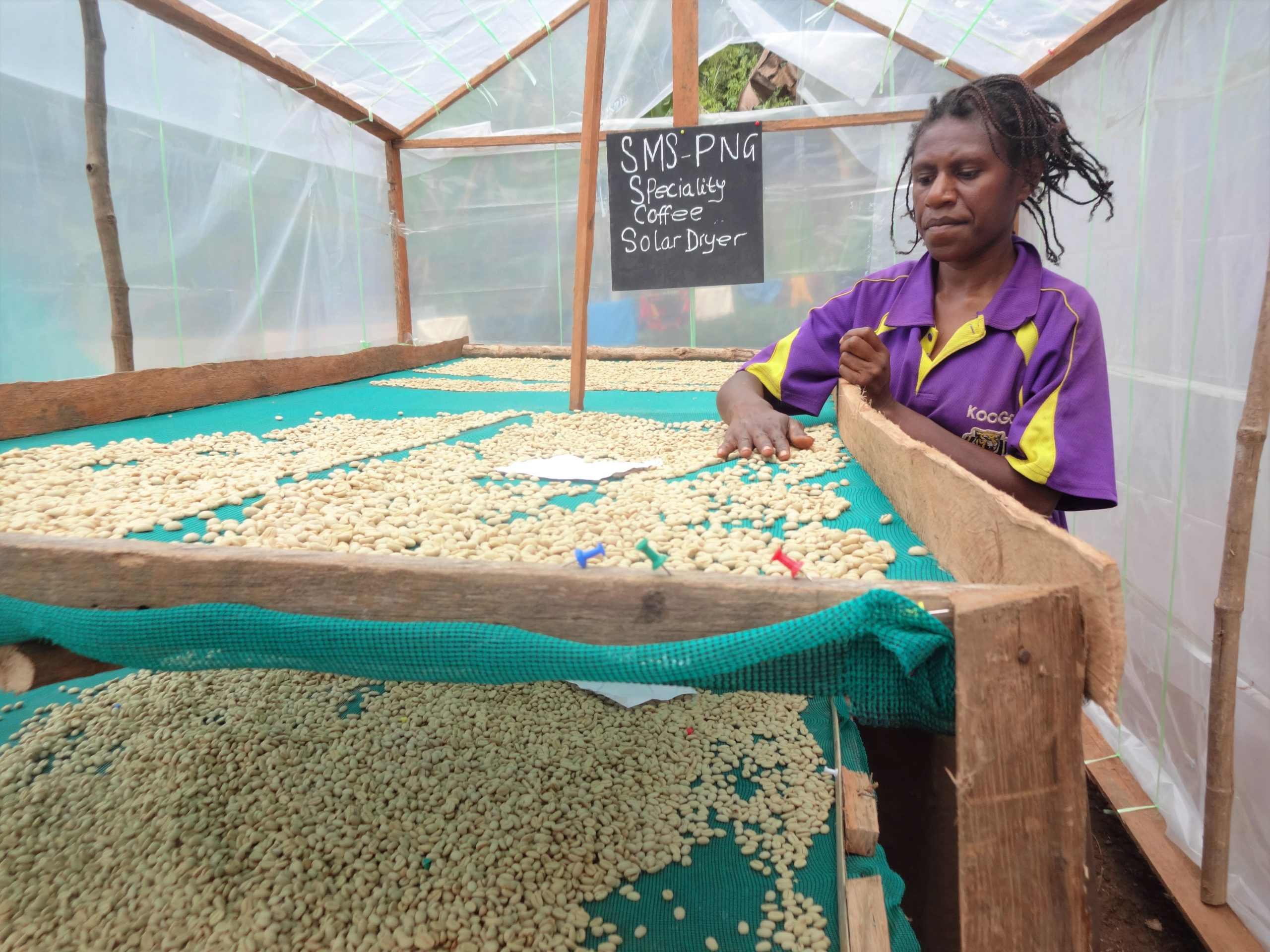PAPUA NEW GUINEA FTO ROOTS NO.1 AX GRAINPRO
Bags 0
Warehouses Madison
Flavor Profile Mixed berries, red wine, milk chocolate
Out of stock
About this coffee
Grower
1590 farmers organized around the Roots No.1 farmers association
Altitude
1900 - 2200 masl
Variety
Typica Arusha and Mundo Novo
Soil
Loamy
Region
Okapa District, Eastern Highlands Province, Papua New Guinea
Process
Hand pulped, dry fermented and washed, and dried on patios and raised screens
Harvest
May - August
Certification
Fair Trade (FT FLO/USA) | Organic
Coffee Background
Kainantu town, the closest urban center for the farmers of Roots No.1, is one of the first main highland towns on the westbound Highlands Highway—the rugged, and only, official route connecting the East coast of Papua New Guinea (PNG) and its industrial port of Lae with the island’s central rainforests. Kainantu, prior to PNG’s independence in 1975, was a busy coffee city for many Australian and European “plantation” (estate) owners and is home to some of the earliest commercial coffee plantings in the country’s history. From its earliest introduction to present day, the arabica gene stock here is considered to be one of PNG’s strongest natural assets, not to mention one of the best-preserved typica lineage variety sets in the world. And these delicate genetics clearly thrive in the country’s highlands, which are some of the most virgin and fertile on the planet.
Between World Wars I and II, Australian settlers would establish more and more large coffee estates in the Eastern Highlands. As commercial exports ramped up, more indigenous Papuans would adopt coffee as a cash crop alongside their traditional economies, in most cases processing at home and selling humid parchment to traveling collectors. For hundreds of thousands of rural farmers coffee would be, and continues to be, the very first and only source of western currency. To this day expert-level cultivation knowledge largely remains in the possession and experience of PNG’s plantation owners, and remote smallholder coffee tends to fall short of its potential, receiving only scarce quality interventions from ambitious millers and exporters. Certain smallholder groups have managed to make a name for themselves, however, by fetching higher prices with better-prepared lots, and keeping communication strong with their exporters despite the geographical and cultural distances. Roots No.1, about 60 rugged kilometers due south of Kainantu in the very remote Okapa district, is one such group.
Roots No.1 began as a local network of 179 coffee farmers in central Okapa, in 2012. The farmers association and official “Roots No.1” name was established more recently, in 2018, with Tony Tokah as the association’s founder. Mr. Tokah, who established a local coffee mill in 2017 with the support of Monpi Coffee Exports, has been instrumental in the growth of the network. Today there are almost 1600 farmer members covering more than 1200 hectares of farmland, and the organization is both Fair Trade and Organic certified.
Coffees grown here are processed as is typical among smallholders in PNG: cherry is picked and hand-pulped on site, and then fermented dry in small plastic tubs or bags between 24-36 hours. Clean water is used to wash the fermented parchment, after which the parchment is sun-dried on raised drying beds for an average of five days. Finished dried parchment is packed in clean jute bags and kept in designated storage huts on individual farms. The local mill established by Mr. Tokah serves as both a collection point for processed coffee and a community hub for farmer trainings, payments, and community meetings. “A/X” in PNG simply denotes a blend of screen sizes, which is independent of the coffee’s quality, and is a common physical grade for smallholder coffee.



